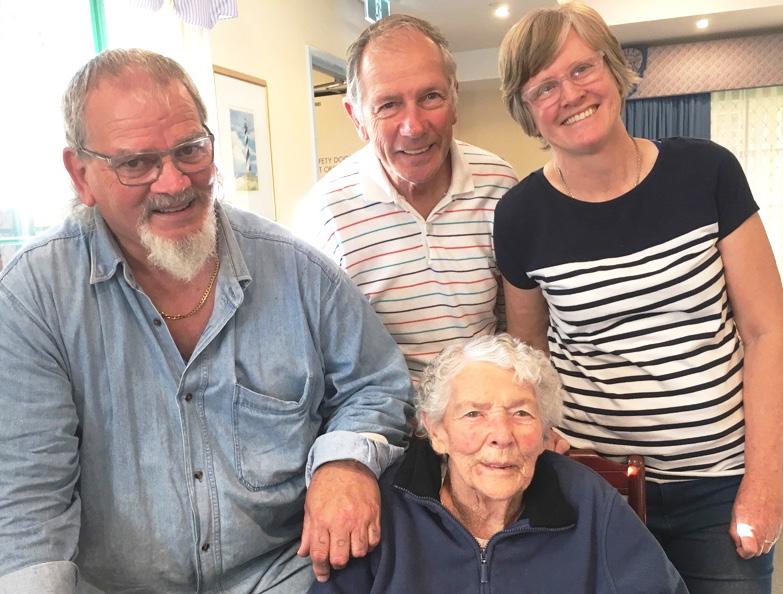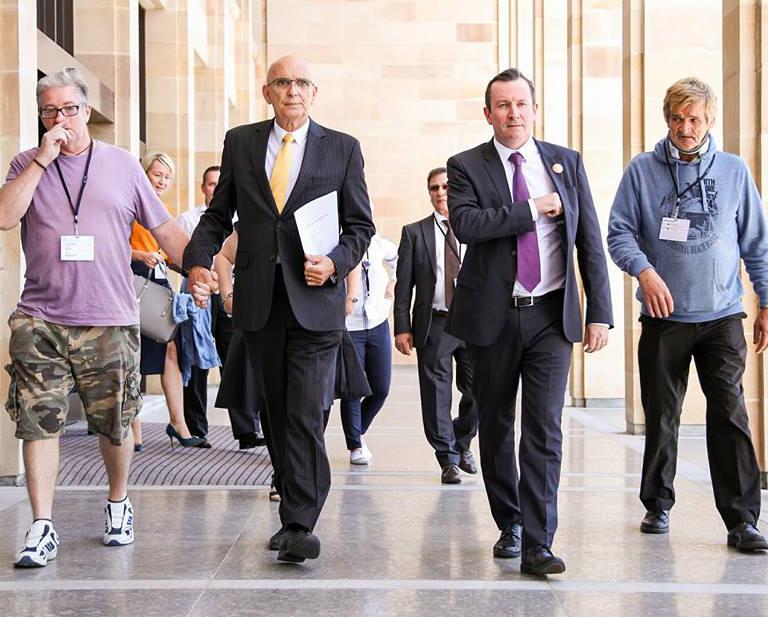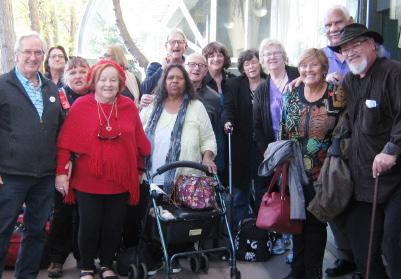MAKE RECORDS RIGHT Tuart Place’s ongoing work with the records sector included a presentation in September 2018 with a panel of experts speaking at the Annual Conference of the Australian Society of Archivists. The Panel, chaired by Curtin University’s Dr Leisa Gibbons, responded to the question How important are records and rights to access for care leavers? (Short answer = very). Our photo shows panel members (L-R) Dr Joanne Evans, ARC Future Fellow at Monash University, Sarah Lewis, State Coordinator of CREATE, Young Consultants Andre and Lily, State Archivist Catharin Cassarchis, and Tuart Place Director Dr Philippa White. During Pip’s presentation she screened footage of the powerful speeches made by care leavers at the WA State Workshop for ‘Setting the Record Straight for the Rights of the Child’, hosted by Tuart Place in September 2017. Pip also outlined eight key principles for releasing records to Forgotten Australians, former child migrants, members of the Stolen Generations, and younger care leavers.
Eight key principles We ask the following things of all record holders releasing care leaver records: 1. Be as proactive and generous as possible in your release of records. Start with an assumption that you will release everything, and work backwards. Only redact information that is reasonably likely to cause harm to a third party. 2. Photos are precious. Please never pixelate or obscure the faces of people who appear in images you release to care leavers. Entire photo collections generously released by some past providers have been on the internet for years, and the sky is yet to fall. 3. While we recognise that the redaction of some thirdparty names in records may be necessary, we suggest that all organisations provide (as a minimum): a reason why the information has been redacted, and a summary of the redacted material. 4. We also ask record-holders to make public statements about how they ensure that redacted information doesn’t cause unnecessary distress to people receiving records, and how they are resourcing the task of providing explanations to avoid care leavers feeling that ‘they know what’s in my file but I’m not allowed to’. The Find & Connect web resource is happy to display this information on their website. 5. Please ask for only one piece of ID – even this can be difficult for some people to provide. And it’s not necessary for applications to be certified by a JP – it just creates another barrier. 6. Allow people to request a copy of their whole file. If people don’t know what’s their file, they can’t know what to ask for. Even the smallest peice of information can be significant. 7. Don’t ask why a care leaver wants access to his or her file - and especially don’t ask if it’s for the purpose of a claim. 8. And, if you are responding to complaints of historic child abuse, never use the absence of records to justify the denial of a claim, or an experience. 6
VALE
Edward Cogan 3-3-37 to 23-8-18 A founding member of FACT A Board Member from 2009 to 2018 A kind and gentle man We miss you Eddie Rest in Peace










